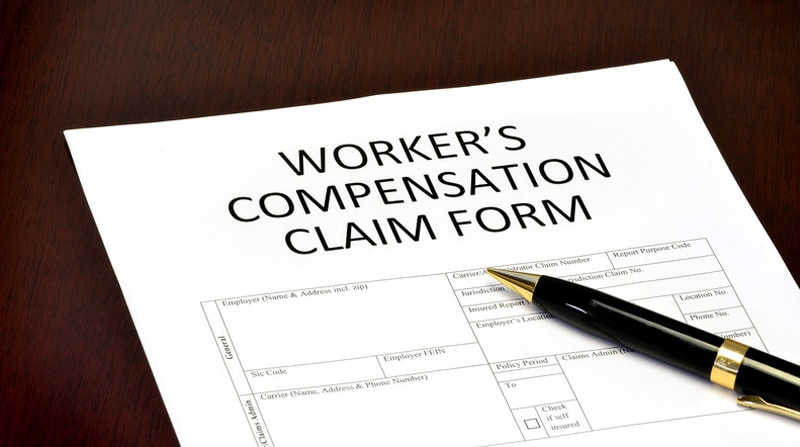Workplace injuries can have a profound impact on both employees and employers. When an employee gets injured on the job, he/she is entitled to workers’ compensation benefits, which provide financial support and medical coverage during their recovery. Workers’ compensation systems distinguish between two main types of injuries: scheduled and unscheduled. When determining compensation, insurers utilize the services provided by medical review companies to understand the claim clearly.
Managed Outsource Solutions provides customized medical record review services for workers’ comp attorneys.
Contact us today at 800-670-2809!
What Are Scheduled Injuries?
Scheduled injuries refer to injuries that are specifically listed in workers’ compensation schedules, often based on the body part affected. These schedules outline compensation based on a predetermined number of weeks, usually with a fixed maximum compensation amount. Examples of scheduled injuries include loss of limbs, fingers, toes, eyesight, or hearing. Since the compensation is pre-determined, disputes over the severity of the injury are less common in scheduled injury cases.
Compensation for scheduled injuries is calculated by multiplying the designated number of weeks by a fraction of the worker’s average weekly wage. The fraction is determined based on the severity of the injury and the body part affected. Medical expenses related to the injury, such as surgeries, treatments, and rehabilitation, are also covered under workers’ compensation benefits.
What Are Unscheduled Injuries?
Unscheduled injuries, on the other hand, involve injuries that are not specifically listed in compensation schedules. These injuries often affect body parts such as the back, neck, head, internal organs, and psychological health. Unscheduled injuries can be more complex to evaluate, as the severity and impact of the injury can vary significantly from one case to another.
Compensation for unscheduled injuries is typically determined by considering various factors such as the extent of disability, loss of earning capacity, and the need for ongoing medical treatment. The compensation amount can vary widely, and disputes over the extent of disability and the appropriate compensation are more common in unscheduled injury cases.
How Important Is Medical Record Review?
In both scheduled and unscheduled injury cases, accurate and comprehensive medical records play a pivotal role in determining the extent of the injury and the subsequent compensation. Medical record review involves a thorough examination of the medical documentation related to the injury. This review helps in assessing the severity of the injury, the impact on the employee’s ability to work, and the appropriateness of the treatment received.
Here’s an elaboration on why medical record review is so crucial:
- Accurate Assessment of Injury Severity: Medical records contain detailed information about the nature and extent of an employee’s injury. Reviewing these records allows for a thorough understanding of the injury, including its cause, symptoms, and prognosis. This information is essential for accurately assessing the severity of the injury, which directly impacts the compensation the injured worker may receive.
- Treatment Evaluation: Medical records provide insights into the treatment received by the injured worker. Reviewing these records helps ensure that the treatment provided is appropriate for the type and severity of the injury. It helps identify whether the medical care aligns with established medical guidelines and best practices. In cases where treatment may be excessive or inadequate, a review can reveal discrepancies and lead to necessary adjustments.
- Diagnosis Verification: Workers’ compensation claims often rely on a specific medical diagnosis to determine eligibility for benefits. Medical record review helps verify the accuracy of the diagnosis and ensures that it is supported by the available medical evidence. A misdiagnosis can significantly impact the compensation an injured worker is entitled to.
- Determining Causation: Medical records can help establish the link between the injury and the workplace. In some cases, the cause of the injury may be disputed. A thorough review of medical records can provide valuable evidence to support or challenge the claim of work-relatedness.
- Assessment of Functional Limitations: In both scheduled and unscheduled injury cases, it’s essential to assess how the injury affects the employee’s ability to perform their job. Medical records can provide information on functional limitations, such as reduced mobility or cognitive impairments, which can impact the worker’s capacity to return to work and earn a living.
- Evaluating Pre-existing Conditions: Pre-existing medical conditions can complicate workers’ compensation claims. Medical record review helps distinguish between pre-existing conditions and injuries sustained on the job, ensuring that compensation is provided for the injury that occurred during employment.
- Mediation and Dispute Resolution: In cases where there are disagreements between the injured worker, their employer, and the insurance company, a thorough review of medical records can serve as a neutral source of information. It can help mediate disputes and facilitate a fair resolution.
- Preventing Fraud: Unfortunately, workers’ compensation fraud can occur. Medical record review is a vital tool in detecting fraudulent claims. By scrutinizing medical records, investigators can identify inconsistencies, exaggerations, or false claims, safeguarding the integrity of the workers’ compensation system.
Medical record review is a cornerstone of the workers’ compensation process. It ensures that injured employees receive appropriate medical care and fair compensation while also safeguarding the interests of employers and insurance providers. Thorough and accurate reviews of medical records contribute to a more equitable and efficient workers’ compensation system, benefiting all stakeholders involved. Medical review companies collaborate with insurance carriers, employers, and healthcare providers to ensure fair and just outcomes for both injured employees and employers.
MOS can assist you with value-added medical record review solutions.
We are available on phone at 800-670-2809.
Scheduled and unscheduled injuries represent two distinct categories in workers’ compensation. While scheduled injuries involve pre-determined compensation based on specific body parts, unscheduled injuries require a more nuanced evaluation of the injury’s impact on the individual’s overall well-being and ability to work. Accurate medical record review and the involvement of medical review companies are crucial in ensuring fair compensation and appropriate treatment for injured workers. By understanding these distinctions and the importance of medical documentation, stakeholders can navigate the workers’ compensation process more effectively and promote a healthier and safer working environment for all.




